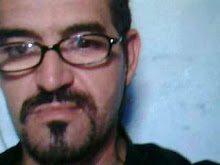
Ithaca, NY is a collegetown located almost four hours from New York City. Sometimes student behavior results in criminal charges. Some might call it hijinks (merrymaking), or shenanigans (according to Wikipeida: Shenanigans are trickery, mischief, or underhanded actions), or as I call it "what were they thinking?" What often seems like a good idea at 3:00AM makes no sense in the light of morning.
Yeah Ithaca College and Cornell University students sometimes unwind from the stress of studies in interesting ways. In my youth, I was a fraternity member. So when things happen, as they often do, at the wee hours of morning, when brain cells are not fully engaged students wake up with various criminal charges.
These students are usually facing misdemeanor charges. A criminal conviction would stay on their permanent record forever. New York State unfortunately does not have an expungement statute. Many of these first time offenders just made a bad decision and/or judgement call. Depending upon the facts and circumstances of the incident, for first timers (to the Court system) these types of charges can usually be negotiated to a non-criminal disposition or a dismissal.
There are a few different options for negotiating and thus mitigating the misdemeanor to something less harmful. Barring prior client criminal history or other extenuating circumstances of the crime charged the Court and the Prosecutor will usually seek an amicable resolution option.
One such option is an ACD. An ACD is a diversionary disposition. It is a Court Adjournment of the matter (for 6 months) in Contemplation of Dismissal. In other words, if the offender does not get into any further trouble with the law over that six month time period the charges will be dismissed by the Court. An ACD is almost as good as an outright dismissal of the charges, your only condition being avoidance police involvement in your life over the specified time period.
If the facts and circumstances of the offense charge involve more serious allegations then the Prosecution and the Court will not usually agree to an ACD. The charges may still be at the misdemeanor level of crime, but they may involve violence, or a pattern of drug abuse, or harm to people or property. These cases are naturally dealt with more harshly by the prosecutors and the Court. Their concern for the general public is understandable.
In these situations a second possible option is a negotiated plea to Disorderly Conduct. Commonly called a "Discon" in criminal Court parlance. Disorderly conduct is not a crime, it is considered under the Penal Law to be a Violation.
Disorderly conduct covers a wide range of unlawful conduct, behavior, and activities.
Disorderly Conduct, Under Penal Law 240.20, has many subdivisions. According to the Penal Law, a person is guilty of this violation when, "with intent to cause public inconvenience, annoyance or alarm, or recklessly creating a risk thereof," a person does one of the following:
(1) Engages in fighting or in violent, tumultuous or threatening behavior;
(2) Makes unreasonable noise;
(3) Uses obscene or abusive language or obscene gestures in a public place;
(4) Disturbs a lawful assembly or meeting of persons without any lawful authority;
(5) Obstructs vehicular or pedestrian traffic;
(6) Congregates with others in a public place and refuses to comply with police requests;
(7) Creates a hazardous condition or physically offensive condition by any act which serves no legitimate purpose.
What are the advantages to a plea to Disorderly Conduct (a violation) versus a plea to a Criminal Misdemeanor?
1. A Violation is not considered a criminal disposition or conviction. It is a non-criminal disposition.
2. A person who is convicted, by plea or trial, of a violation is entitled to have the record sealed.
3. A person who is convicted, by plea or trial, of a violation is entitled to have their fingerprints and any photographs (mug shots) returned.
4. Disorderly conduct is a "non-printable" charge for which fingerprints are not required.
5. A person who is convicted of a violation is entitled to have that statewide record kept confidential. In other words, no statewide search by the Office of Court Administration of electronic records can be disseminated to the public of a Violation once it is sealed.
Note however that the actual paper records kept in a City or Town's Criminal Court are not sealed, and the public does have access to the physical record in the clerk's office. Someone could physically go to that particular City, Town, or Village Court and find your records.
A Disorderly Conduct plea can be a practical resolution and compromise to having a trial. Trials always involve a degree of risk. The risk of losing at trial (and being found guilty of a misdemeanor) usually far outweigh the benefits of pleaing to a violation.
For the all following reasons, when prosecutors and defense lawyers negotiate pleas to violations it helps clients avoid the lifetime consequences of a conviction for a crime that they were alleged to have committed.
Larry Newman, Ithaca DWI Lawyer
http://www.ithacadwi.com
http://ithacadwi.blogspot.com
607-229-5184
Article Source: http://EzineArticles.com/?expert=Lawrence_Newman
Lawrence Newman - EzineArticles Expert Author
